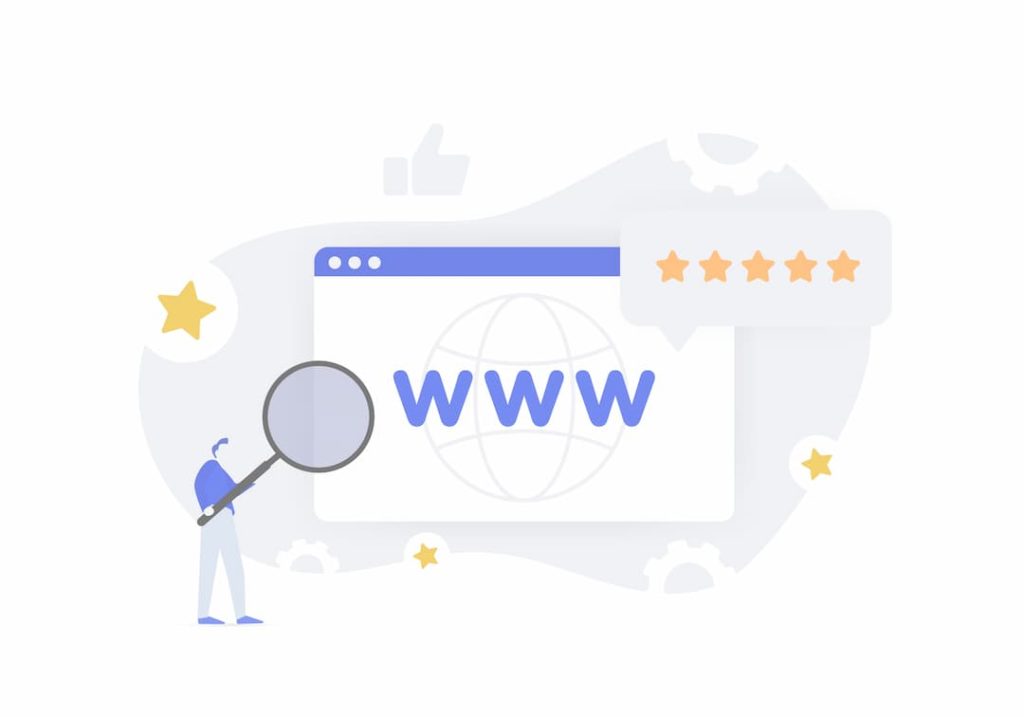Are you wondering why your SEO efforts aren’t showing results? Perhaps you’re not looking at the data in the right way. We get asked the question ‘how long does SEO take to work?’ a lot, and it’s a difficult one to answer. SEO – or search engine optimisation – strategies will look a bit different for everyone. How long it takes to show results will vary. The most concise answer is: it depends.
For this article to comply with SEO best practise, we need to give you a better answer than that. Google would probably penalise us if we told you we had the answer, but it was as vague as ‘it depends’.
So, let’s take this opportunity to explore how SEO works and give you a better idea of how long it might take for your unique circumstances.
Why Does SEO Take So Long?

To put it bluntly, SEO is not advertising. There’s no way to guarantee where you’ll appear in the search results, and you can’t pay to be the first organic result. You simply have to be the best to be there.
To be the best, your website must fulfil Google’s requirements. You should be filling your site with helpful, reliable, people-first content. It should offer value to searchers and leave them feeling satisfied. Generating content simply to appease the algorithms will not result in a better search result, as it’s not going to benefit people.
Why SEO Is Important For Business
If you have a business website, it’s important that your customers are able to find it. You can pay for GoogleAds if you’d like to appear in the sponsored search results. Paid ads are a great way to be found quickly. However, a long-term SEO strategy could mean that your website appears on the front page organically, without paying Google to be there.

Statistically, users are most likely to interact with results that are on page one. In fact, only 0.63% of users will click on something on the second page. The best result is, as you might expect, to be in position one on page one of the organic results. Websites that appear here will get a higher CTR (click through rate) and therefore make more sales.
What Is The Success Rate Of SEO?

There’s a few reasons why a successful SEO strategy is so desirable. 53.3% of all website traffic comes from organic search. That’s why high ranking websites see better traffic levels.
However, measuring success is rather subjective. Only 5.7% of pages will rank on the first page of Google within a year of publishing. This indicates how competitive it is to climb up the search results in a short space of time. In fact, the average age of the top ten pages on the SERPs is two years old.
Although SEO requires patience and a lot of skill, it does pay off. 76% of mobile searchers will visit a physical business after carrying out a local search on Google. As well as this, 28% of local searches will lead to a sale.
How Long Does It Take To Get To The First Page Of The Search Results?
There’s no definitive answer. However, you should allow at least 6 months for your SEO work to show measurable results. By measurable results, we mean a marked increase in conversions and enquiries. How quickly you can climb up the ranks will be heavily dictated by your competition. More difficult keywords will take much longer to optimise for than niche queries.

It would be wise to set your expectations for good results to between 6 and 12 months. That doesn’t mean that you won’t see positive change before that time, but SEO is a gradual process and should be considered a long-term strategy that grows over time.
It’s also an ever-changing process. Google releases new updates throughout the year which change how SEO works. To maintain position one, your optimisation work must be ongoing. Never take your search position for granted, as it could change at any time for any reason. It will take persistence to keep your website ranking high consistently.
What Happens In The First 6 Months Of An SEO Strategy?
There’s a lot of work required to get a website ready to rank. The first step is a full website audit. You’ll need to proofread all your content, redirect any 404s and make sure your whole site is mobile responsive. Then, you need to make sure everything is indexable, has had indexing requested and is appearing on Google.

You also need to carry out keyword research and industry research. The data you collect will be used to formulate your strategy. This gives you the best chance of ranking for your desired terms. Research must be an ongoing part of your SEO strategy. Industry standards and search engine algorithms change regularly, so you can’t afford to get left behind.
When your website is fully audited and healthy, you can begin implementing more complex technical work. This work should support your content strategy and keyword optimisation.
How Do I Get To Position One?
SEO is a practice that covers a huge range of disciplines. The best strategies will include detailed technical work, thorough research and an excellent content strategy. When all of this is implemented successfully, you can expect to appear higher up in the search results.
Websites that appear high in the results typically have the following attributes:
- High domain authority
- Quality content
- Good technical health
- Robust security features
Let’s dig a little deeper into these.

Domain Authority
Your domain authority is a measurement numerous variables that show how much trust there is between your website and its users. It improves over time as you build your SEO strategy and is heavily influenced by link building and on-page content – to name a couple of variables. Links that come from high authority sites have a higher value, but most links will count towards your score. The exception would be links from websites that are considered as spam. The score will be anywhere between 1 and 100, with a higher score meaning better domain authority.
Why Are Links So Important?
Backlinks indicate that your website is doing something well. If you have a page with lots of high quality information on that people will value, they are more likely to link to that content. This shows algorithms that your website is a great source of trusted information.
Google search advocate John Mueller has said that search engines don’t use domain authority. He’s actually said it a few times. However, your domain authority is a great metric to audit your website against your competitors. Comparing your DA with similar websites will give you an indication of how powerful your site is compared to theirs.
Websites with high domain authority tend to be older and have a lot of high quality pages. When it comes to pages, more is not always better. If you add lots of pages without considering their value, this could be perceived as spam.

Unfortunately, there’s no way to fool Google into thinking your domain is older than it is. However, you can still increase the amount of pages on your website. Starting a blog, for example, is a great way to do this.
For new pages to increase your domain authority, they must be full of high quality content that people might want to link to. This leads us to…
Quality Content
Well written, unique and helpful content is a confirmed ranking factor for Google. If your website is legible, informative and factually correct, you’re off to a good start! High quality content helps Google to fulfil its goal to provide relevant, detailed search results to all user queries.
A blog page is an excellent way to expand your website. Blogs add more pages to your site, which gives search engines more URLs to index. This increases your chances of ranking for more keywords. It also allows crawlers to understand your website more deeply. The more pieces of content you have surrounding your specialist subject, the more expertise and authority you show.

Showing extensive knowledge of a subject is a great way to build trust. Building trust with Google takes time and persistence. A consistent content strategy will help this process, but it’s important to be patient. If you can add new content to your site more frequently, you could see improvements faster than you would otherwise. This is because more pages give users more opportunities to discover your website. If you have a range of pages that can satisfy different search queries, you’ll appear in more searches.
Your content should try to be better than what’s already available. A great way to formulate a content strategy is to research your competitors and improve upon what they’re doing.
Website Technical Health
Good technical health is the foundation of any successful website. The content on websites is read by robots, so if the technical aspects of your site aren’t healthy, they could have trouble accessing it. This means that websites with 404 errors, HTML errors and similar technical issues risk not being indexed at all.
Crawlers work their way through the links in your website to discover your content. If any of the links are broken, this becomes a block. Ensure that all your links are healthy and working, so no pages get left behind. Make sure that any new content you add gets linked to as well. Creating and submitting a sitemap is really useful for this, as it gives crawlers a good idea of the layout of your site.

The layout of your website should make sense. Your homepage should provide an overview of what the site is about, with links leading to main pages. Those pages could then link to deeper pages. The user journey should be clear. This will help crawlers understand your website better as well.
An important thing to factor in is mobile responsiveness. Google predominantly crawls and indexes all websites in their mobile version. If your website isn’t mobile responsive, you’re falling at the first hurdle. Ensuring that your site looks good on desktop, tablets and mobiles is more important than ever.
Website Security
Nobody wants to put their online security at risk. That’s why it’s so important to have the latest security features and secure hosting. Google knows this, and for that reason having an HTTPS encryption is a confirmed ranking factor.
Why Is My Website Not Ranking For Its Keywords?
There could be a number of reasons.
However, keep in mind that ranking for keywords isn’t the be-all and end-all for SEO. Nowadays, many searches come in the form of questions, so some keyphrases look more like natural spoken language. Just because you don’t appear for a single keyword, that doesn’t mean that you’re not appearing for other relevant queries. You should judge the success of your SEO campaign on an increase in traffic and queries, not just your ranking.
If you’re still concerned about where your website is ranking, you should carry out a full website audit. Carry out keyword research and check your site’s keyword density. Proofread your content and make sure your website is technically healthy.

You should also consider what industry you’re in and your location. If you’re competing for highly competitive search terms in densely populated areas, you will have a much harder time reaching page one. That doesn’t mean that it’s impossible, it just means that you’ll have to put in more work and allow more time for your website to climb up the search results. It could take a year or longer to appear on the first page for highly competitive keywords.
Help! My Keywords Are Really Competitive In My Area
It can be really frustrating to find out that you’ve put a lot of effort into your SEO and still aren’t seeing results. If you’re still stuck on page 2 after a year-long campaign, it’s worth taking a step back and reanalysing. You should review the following:
Competitors
Who is your main competition for your primary keywords? Find them and find out what they’re doing right. You can use this to formulate your own strategy to improve on their work and eventually outrank them.
However, we must be realistic. Outranking some competitors may require a lot more effort than it’s worth. If you’re a hotel, for example, you might find that the first page of the search results is filled with Booking.com, TripAdvisor, LastMinute, Hotels.com, Trivago, PremierInn and Travelodge. These powerhouses will be nearly impossible to outrank by a local B&B business. However, that doesn’t mean that your efforts have been wasted. Simply redirect your efforts to outrank them for different search terms.
Long-Tail Keywords
If you’re only checking up on your main keywords, you could be neglecting some really important terms. Let’s say you’re an electrician based in Bristol. You may not be ranking for your main keyword of ‘Electricians Bristol’. However, you could be in the top spot for ‘EV Charger Installations Bristol’ or ‘EICR Certificates Bristol’. These more specific searches tend to yield better results. People are more likely to be looking to make a purchase when using long-tail keyphrases, so being at the top spot for these has a huge amount of value.
Join The Competition
Many of the websites you compete with for high-traffic terms will be aggregate sites. Let’s look at our hotel example again. TripAdvisor is an aggregate website that houses information and reviews about hotels. This would be a great opportunity to open up a profile for your business. You may find that even though your website doesn’t reach the first page, your TripAdvisor profile might. This example doesn’t just apply to hotels. There are thousands of different rating websites and accreditation providers that you can build an online presence with.
Could You Pay For A Boost?
Depending on your budget, you might be able to give your website a quick boost to the top with paid ads. GoogleAds are a great way to get on top quickly. An increase in users could have a positive effect on your likelihood to rank. It also means that your website is exposed to a wider audience. This may result in an increased CTR in the organic search results.
SEO Takes Time, Persistence And Patience
If your website is fully optimised and on-track to start ranking for keywords, don’t forget that it will still take time. Every website has to start somewhere and growth can be slow. SEO doesn’t produce overnight results – nor should it. If you think about it, if anyone could create a website and push it to the top spot in a day, there could be all sorts of problems. Building trust over time is a great way to prove to Google and your customers that you’re a legitimate, trustworthy business that deserves a great position in the search results.
Written by Alice Farley




